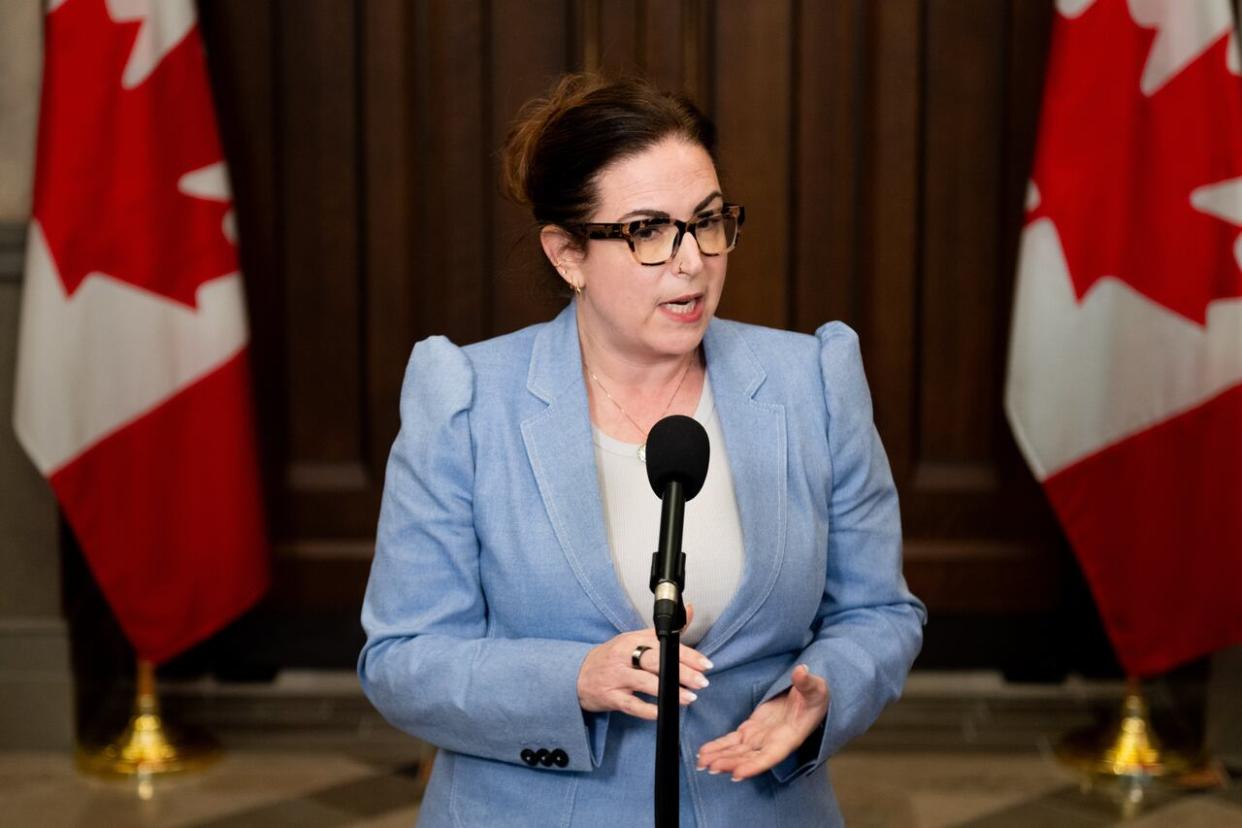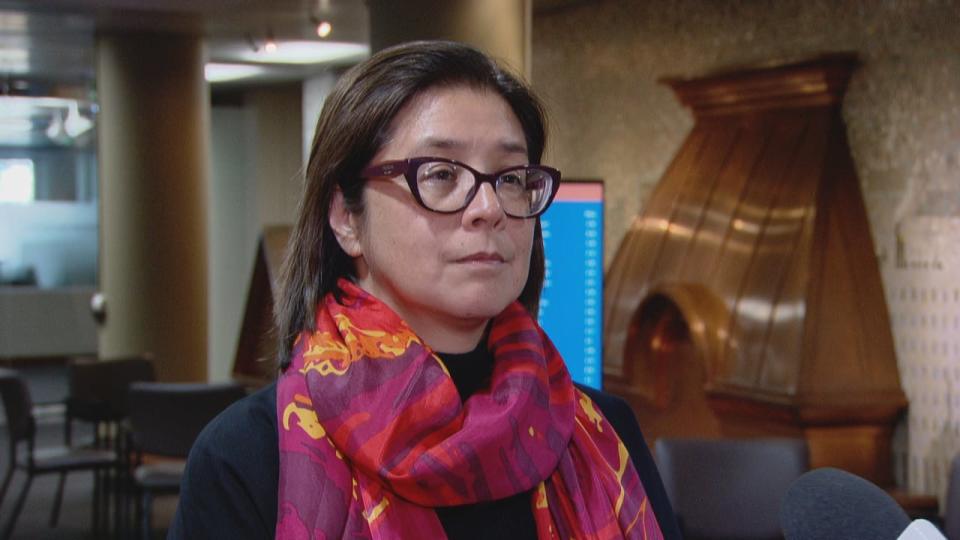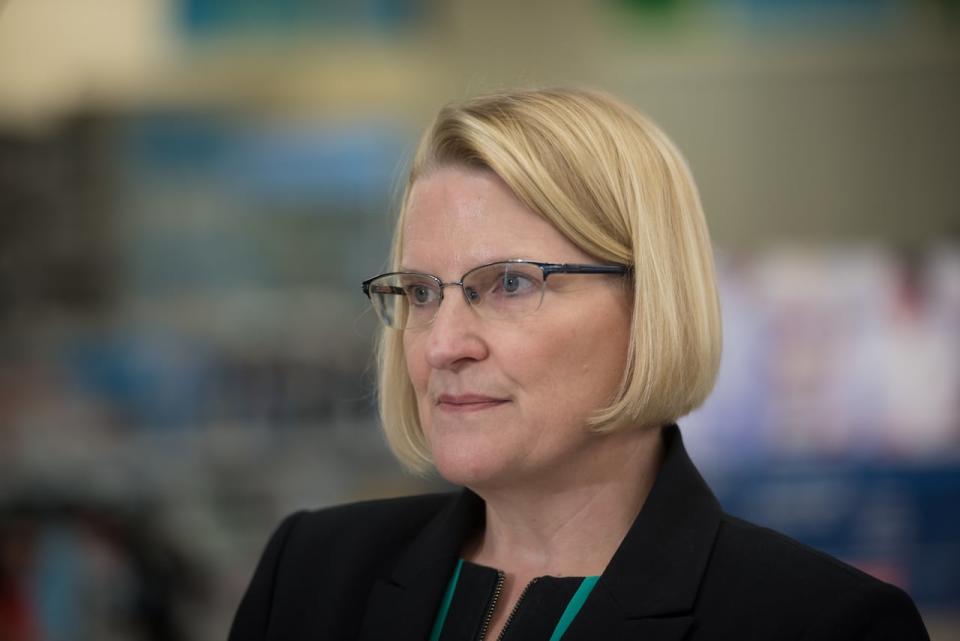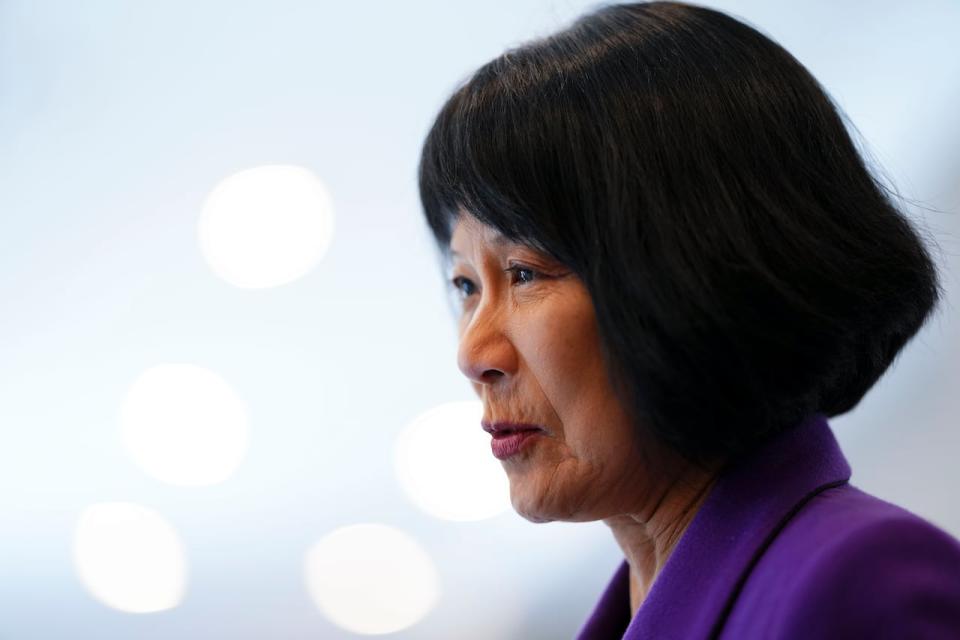Feds reject Toronto's request to decriminalize simple possession of illicit drugs

The federal government has rejected a request from Toronto to decriminalize the possession of small amounts of illegal drugs for personal use within the city.
Mental Health and Addictions Minister Ya'ara Saks rejected the request due to lingering concerns about safety, according to a statement from Health Canada released Friday.
"She has determined that it does not adequately protect public health and maintain public safety," the statement said.
Toronto's Medical Officer of Health Dr. Eileen de Villa said Friday that decriminalization is "one evidence-informed policy tool" to address the opioid crisis.
"As Minister Saks has refused Toronto Public Health's request to decriminalize personal possession of controlled drugs and substances, the need to invest in other available evidence-based interventions is all the more critical," she said in a statement.
Toronto Public Health reported 733 suspected drug-related deaths in the city in 2023, including 523 deaths caused by, or likely caused by, opioid toxicity. At least 42,000 people have died of opioid overdoses in Canada since 2016.

Toronto's medical officer of health Dr. Eileen de Villa said efforts need to be refocused on other tools to address the opioid crisis after the federal government rejected the Toronto's request to decriminalize drug possession within the city. (CBC)
The city made a request to Health Canada in early 2022 for an exemption under the Controlled Drugs and Substances Act. The application was supported by the Toronto Police Service and harm reduction experts and advocates.
Ontario's chief medical officer of health also has called on the province to decriminalize possession of unregulated drugs for personal use.
Last week, Ontario Health Minister Sylvia Jones and provincial Solicitor General Michael Kerzner wrote a letter to Toronto's medical officer of health indicating that the province would not support Toronto's bid for decriminalization.
"Under no circumstances will our government ever support your request, which would only add to crime and public drug use while doing nothing to support people struggling with addiction," the letter reads.

Ontario Health Minister Sylvia Jones said the province would urge the federal government to deny Toronto's application to decriminalize small amounts of drugs for personal use. (Tijana Martin/The Canadian Press)
Friday's press release from Health Canada points to the province's lack of support as one of the reasons for the rejection.
"[The federal government has] concerns with feasibility and ability for law enforcement to implement the proposed model, protection of youth, and lack of support from key players including the province of Ontario," the statement said.
Toronto Mayor Olivia Chow wrote to both Prime Minister Justin and Ontario Premier Doug Ford on Friday asking for a more coordinated approach to the opioid crisis.
"We have an opportunity to change how we approach this epidemic and develop a whole-of-society framework to meet health needs in a strategic, efficient, and cost-effective way that improves the lives of all residents," she wrote.

Toronto Mayor Olivia Chow speaks to reporters in Ottawa on Monday, Feb. 26, 2024. (Sean Kilpatrick/The Canadian Press)
Chow is suggesting, among other things, a 24/7 crisis centre, expanded housing programs, new social supports and health services.
"Shared commitment and responsibility for increased treatment demands a collaborative pilot program focusing on a broad and bold approach, one which encompasses connections to primary care, supportive housing, harm reduction and partnerships with emergency services," she wrote.
The federal government's denial of Toronto's request comes in the wake of the recriminalization of public illicit drug use in the province of British Columbia.
B.C. began a decriminalization pilot in January of last year, but recently requested that the federal government adjust the program.
Last week, the federal government granted B.C.'s request. Public possession of illicit drugs is again illegal in the province, but adults won't be arrested for possessing or using drugs in private.

